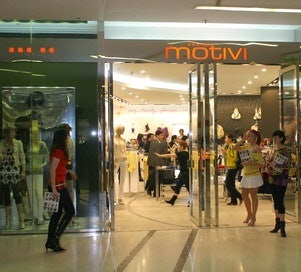Chinese Companies Interested In Acquiring, Then Importing, American Brands#

Potential Acquisition Target? Loro Piana
Last month, Jing Daily covered the Fosun Group's plans to acquire a 9.5 percent stake in Greece’s Folli Follie Group for US$121 million, a move that we said reflected the broader interest among Chinese conglomerates to buy up global brands, then re-engineer them with an exclusively China-facing focus. (A model popularized by Ports 1961 owner Kenneth Chan, who moved the company's operations from Canada to Xiamen after acquiring the brand in 1989.) Similar acquisitions have been seen in recent years in the automotive industry (with Geely's acquisition of Volvo being the most obvious example), the textile industry, and the fashion industry, where Chinese companies like Li & Fung have recently taken over Western brands like Cerruti.
As Fashion Trend Digest editor Ye Qizheng recently pointed out, mid-range and mass market Western brands are the most attractive for Chinese companies on the hunt for acquisitions, since "these brands can be completely made in China, so there are more options." As Ye added, "It’s best [for these Western brands] to have a certain domestic reputation and be able to cater to the specific demands of the Chinese market."
This week, Patricia Pao, CEO of the Pao Principle (previously on Jing Daily) writes that the trend of buying globally and refocusing locally continues to gain pace in China. Looking to leverage the reputation of imported products -- particularly cosmetics -- among domestic consumers, Pao writes, Chinese companies are hoping to acquire, or in some cases establish, brands in the United States or elsewhere then import their products into China at a premium. From MediaPost:
I was recently in Beijing meeting with a leading Chinese beauty distributor about launching one of my client's brands. In the middle of the meeting, the CEO interrupted me (which is highly unusual) and said that he wasn't interested in taking my client's brand but he was extremely interested in having my company create and develop a proprietary and innovative skincare line that would be manufactured in the U.S. and imported into China.
He explained that beauty and luxury goods made in China lack cachet among the Chinese and that the most successful brands were from Europe (e.g. France, Italy) and the U.S. He said that he spent over 30 years in successful partnership with leading global beauty companies and the time was now to begin thinking of building his own global beauty brand.
I found this dialogue to be extremely fascinating as it caused me to ask, "If he wants to be the next Estee Lauder, are there other Chinese companies who want this as well?"
It appears the answer is a resounding YES!

Mandarin Capital Partners recently invested in the Italian mass-market brand Motivi
Pao goes on to mention similar investments in the consumer retail segment, notably the recent announcement by the Sino-European private equity firm, Mandarin Capital Partners, that it will pour €40 million (US$57.9 million) into Miroglio, the second-largest women textile group in Italy. As Jing Daily wrote earlier this month, the Miroglio Group is perhaps best known in China for its fast fashion brand Motivi, a favorite among young female shoppers. Aimed at the same consumer base as brands like Zara, Motivi currently has locations in Shanghai, Beijing, Harbin, Dalian and Shenzhen, with plans to open more than 100 new outlets in China over the next three years.
Still, with its investment in Miroglio and, by extension, Motivi, Mandarin Capital is very much focused on the mid-range consumer market, moreso than Fosun with its investment in the more premium Folli Follie. This indicates that many investment firms and Chinese companies may not yet be ready (or able) to target internationally respected brands in the considerably more risky and difficult luxury segment.
But will this change, as the concept of the "made in China" high-end brand evolves? As Patricia Pao concludes:
I believe that within the next 20 years, the Chinese will have assimilated the knowledge [of acquired brands] and use this knowledge to develop their own brands. It's a "win-win" situation as Chinese investors can capitalize on the brands' existing global business while helping them to expand into China's prized consumer market. I am already taking bets as to see who will be next. I am predicting that a company like Loro Piana, with its stellar pedigree and need for cash to expand, will be next.